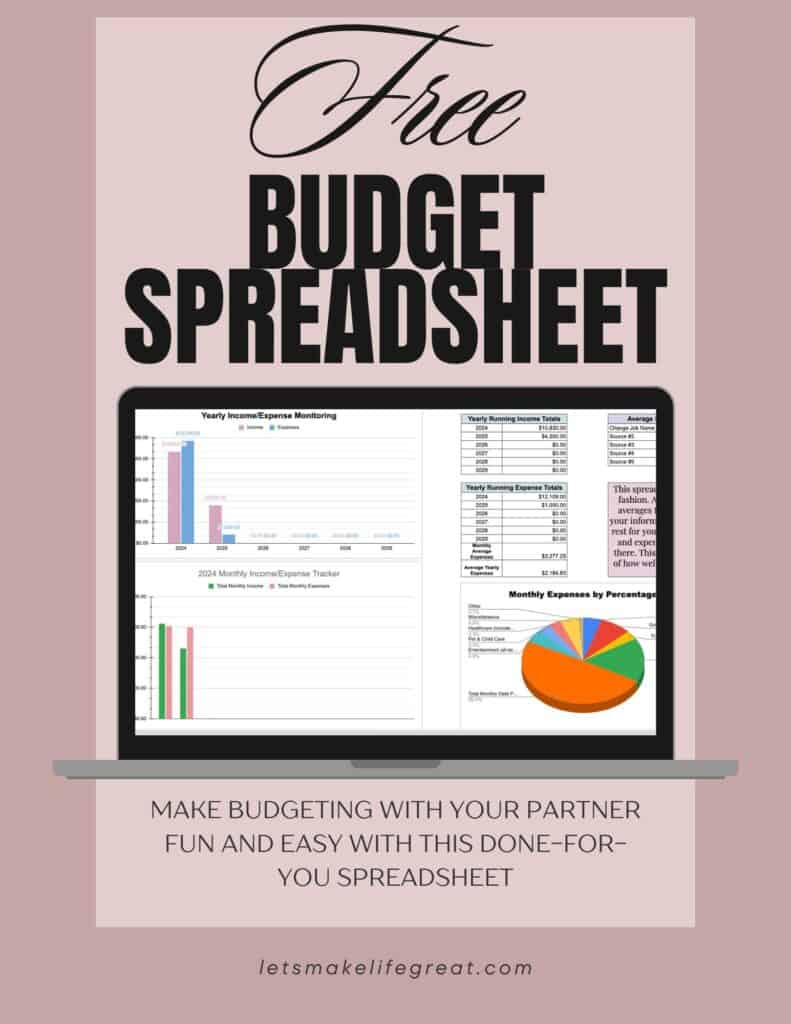
This post may contain affiliate links, meaning I may receive a commission if you purchase through my links. I only recommend products I have personally tested or have thoroughly researched. All opinions are my own. Please read the full disclosure for more information.
Every college student, no matter what degree they are working on, will be exposed to a whole new world of finance. College is a time when we are much more likely to take out loans, borrow money from friends, blow a paycheck or two, or apply for too many credit cards.
This is a normal experience for many of us, and unfortunately, it can be a hard lesson. Often, with harsh consequences. I experienced a few of these hard lessons myself while earning my bachelor’s degree.
But, after a few semesters, I decided to take a personal finance course. I can’t remember if it was a requirement or an elective, but regardless, I knew I wanted to learn more about personal finance.
So, I signed up for the class, and was ready to be opened to a whole new world of money! And I have to say, I wish I had taken it sooner, and I would love to take the class again. I learned so much from this amazing experience, and I want you to understand the benefits of a personal finance course as well.
Everyone Has Expenses
By the time I signed up for this course I had already been taking out student loans. I wasn’t working full time, but I was working part-time here and there to help pay for extra expenses like groceries, books, gas, and that sort of thing. I have to be honest though and admit that I was very privileged to have some financial help from my supportive parents. They mostly paid for my living expenses (rent), while I was expected to pay for the rest of my expenses like tuition, groceries, and anything else.
Debt
So, while I had an advantage that some students didn’t, I still had my monetary commitment to School. This was mostly in the form of loans, even though I was fortunate enough to receive a few scholarships. However, by the time I graduated with my bachelor’s, and later an associate degree from a different program, I was burdened with student debt of over $27,000. Before starting my associate’s degree, I had to purchase a newer car since my old one was no longer safe and reliable. That cost me an additional $9,000+ in debt.
Earning Extra Income
Luckily, I live in a town that houses a plasma donation center, where I was able to donate routinely and make an extra $300-500 a month. This is how I was able to pay off over half of my car loan within a year. I was making over double the minimum payment each month for about 7 or 8 months. Now, I have around $1,300 left to pay. And, because I made double payments ahead of time, I haven’t had to make a payment for 6 months.
How do I make my money work for me?
So, how am I going to recalculate how many more payments I must make before my car is paid off? Or how much will I need to contribute each month to pay my car off in 3 months?
What about my student loans? How long would it take to pay off my loans if I paid an additional $20 each month? If I want to pay off my loans in under 3 years, what will be my monthly payment?
These are some of the questions I am now able to answer because I took a personal finance class. And while I am by no means a professional when it comes to money, I feel so much better with having even a basic knowledge of my finances.
A Personal Finance course taught me…
- How to budget
- How to recalculate loans and loan payments
- What kind of insurance you might need (health, life, disability, homeowners, car, etc.)
- How much insurance do you need
- What you need to know when applying for a home loan
- How to plan for retirement
- What you need to consider when investing
- How much you should save for future goals (marriage, kids, house, vacations, etc.)
- How much of a house you can afford
Utilizing my finance knowledge
One of the very first assignments I did was to track my budget for a month. This assignment got nitty gritty and required us to record absolutely every penny we spent and earned.
While I won’t ask you to track every single penny, I encourage you to give budgeting a try. If you want to learn more about budgeting, check out my post Free Budgeting Spreadsheet! – How to Easily Track Your Finances.
Free Budgeting Spreadsheet for Couples/ Individuals
This free Google Sheet is a done-for-you spreadsheet to help you and your partner make budgeting simple, easy, and fun. With easy-to-understand visual graphs and easy-to-plug-in income and expense tracking, this spreadsheet does the hard work for you.
Get your free spreadsheet today and take control of your finances.
You don’t have to track your budget for an entire year. This is certainly up to you and how much you want to keep up with your money stream. But tracking 12 months can give you a much better idea of what your average monthly cost is for every penny you make and spend.
After completing this assignment, I felt empowered and enlightened. And certainly, much more aware of where I was spending too much money. But this wasn’t the only assignment and wasn’t the only lesson I needed to learn. As college students, most of us have little to no concerns about retirement, or mortgages. Not for a while at least.
But someday, we will be. And thankfully after taking a personal finance course, I have a much better idea of how to prepare, and what I need to do for a better financial future.
Continuing Education
And after graduating with a bachelor’s degree, I decided I wanted to continue learning more about money, how to save it, invest it, and make more of it. But I didn’t want to pay for another class at the time or a degree. So, I started listening to podcasts.
For some reason, I used to think they were kind of silly and wasn’t interested in them. I didn’t understand what they were at the time, so I just kind of ignored the potential. But that was before I listened to one and realized that they are amazing! I can’t believe I didn’t start listening to them sooner. I just thought they were another popular trend, but not all trends are a bad thing.
Podcasts are like customized radio shows that you can pick and choose. You can listen to them whenever. And you don’t need to wait for a certain time of day just to listen to your favorite shows. So, podcasts have become a new favorite of mine.
There are 2 podcasts that I listen to regularly and find to be genuinely helpful in increasing my financial knowledge.
- Financial Feminist by Her First 100K
- Optimal Finance Daily
Her First 100K is founded by Tori Dunlap. Tori covers tons of topics on her podcast. She includes guest speakers and even makes new episodes based on her fan’s requests. I absolutely love listening to Tori because I feel like she genuinely wants to help her audience and teach them the financial knowledge they actually need and want. Plus, it’s a great listen for short and long commutes. And I find Tori hilarious, and I enjoy how much fun she has on her show!
Optimal Finance Daily is one of several podcasts that has branched out from the Optimal Living Daily podcast. Optimal Finance is hosted by Diania Merriam and is divided into easy-to-listen, 10-minute episodes. I love this podcast because there is such a variety from day to day, and it is so easy to listen to. Episodes are narrated from well-known personal finance blogs, which saves us time from having to read them ourselves. Essentially, this podcast is an audiobook of your favorite finance blogs.
If you don’t have much time throughout your day, this podcast is great because you can listen to it while getting ready for your day, or right before you go to bed. Anyone and everyone can benefit from this podcast!
Why Every Student Needs to Take a Personal Finance Course
I learned so many things in a personal finance course that I wouldn’t have otherwise learned on my own. At least not the easy and painless way. And now I am empowered to continue learning more about how to make my money work for me, rather than just working for my money. This is why every student needs to take a personal finance course! It empowers you and gives you the confidence to take control of your money.
